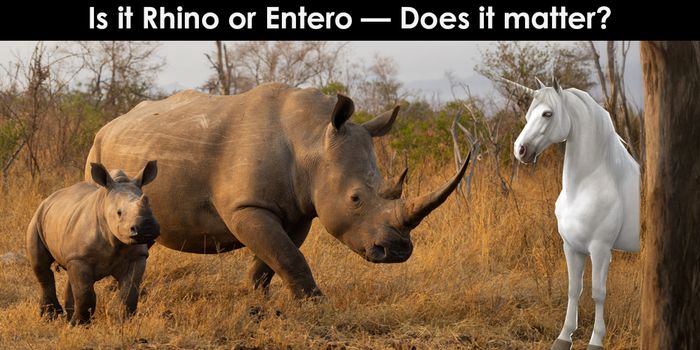Women: Please Don't Put Wasps Nests in Your Vagina!
Women: Please don’t put wasp nests in your vagina! It sounds so obvious and self-explanatory that such a headline reads like a prank. But sadly, doctors have had to resort to getting the news out, given the alarming new trend of using wasp nests for vaginal rejuvenation.
Sellers on Etsy and Amazon are shilling wasp nests as a way to tighten and cleanse the vagina. These products are not outright called wasp nests; rather they’re marketed as oak galls or oak apples, in whole and powder form. According to Women’s Health, one Etsy seller claimed the gall powder can be ingested or used as a vaginal wash to harness “natural vaginal tightening,” “anti-inflammatory properties,” and “to remove unpleasant odor and itching on female's private parts.” As of this writing, the product from the aforementioned seller is no longer available.
What are oak galls anyways? These are protrusions on a tree that form when wasps lay nests in the tree’s branches. In essence, the galls are a way for the tree to defend itself against the wasp invaders. Leave it to some creative minds in history to start grinding up the galls and using the powder as a vaginal treatment. In India, Malaysia, and China, the gall powder has been used for centuries as an herbal remedy to treat vaginal infections.
But just because people have a history of using it doesn’t mean it works, nor that it should be used for such purposes.
“Here’s a pro-tip, if something burns when you apply it to the vagina, it is generally bad for the vagina,” wrote Dr. Jen Gunter on her blog. And in terms of ground-up wasps nests, burning could be the least of your worries.
There are no concrete scientific evidence that oak galls tighten the vaginal walls. There are evidence, however, that the powder contains chemicals that will dry out and irritate the vagina. Furthermore, the powder can alter the delicate pH balance of the vagina, allowing for raging infections to take place.
“Drying the vaginal mucosa increases the risk of abrasions during sex (not good) and destroys the protective mucous layer (not good). It could also wreak havoc with the good bacteria. In addition to causing pain during sex it can increase the risk of HIV transmission... This is a dangerous practice with real potential to harm,” writes Dr Gunter.
So women, please don’t be fooled by the pseudoscientific claims of these products. Just like Gwyneth Paltrow’s jade eggs, wasp nest powders also don’t belong anywhere near your nether regions.









